Surround Numbers for Polyhexes
A polyhex is a plane figure formed by
joining equal regular hexagons edge to edge.
The surround number of a polyhex
is the least number of copies of the polyhex that can enclose it without gaps.
Strong surround numbers for polyominoes were proposed
by Jaime Poniachik in Issue 8
of Puzzle Fun.
He asked for the smallest polyominoes with a given strong surround number.
In Issue 10,
Rodolfo Kurchan extended the problem
to polyiamonds, polyhexes, and polyaboloes.
He also investigated the smallest polyforms that cannot surround themselves,
and the smallest holeless such polyforms.
This page extends his results.
Here I show minimal surrounds for holeless polyhexes with up to 6 cells,
the smallest polyhexes with given surround numbers up to 8,
and the smallest holeless polyhexes that cannot surround themselves.
The solutions for minimal surrounds are not necessarily unique.
See also
Minimal Surrounds
Monohex

Dihex

Trihexes
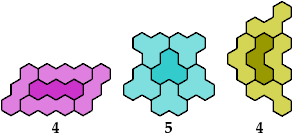
Tetrahexes
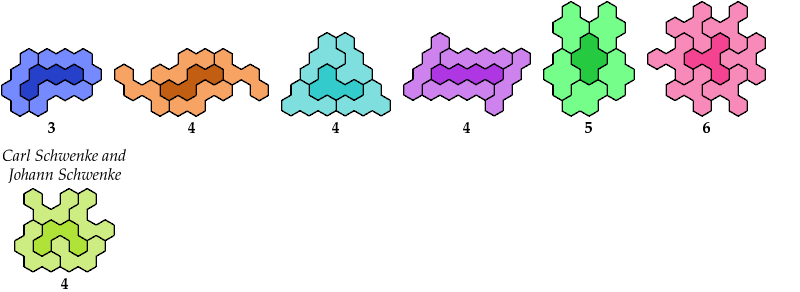
Pentahexes
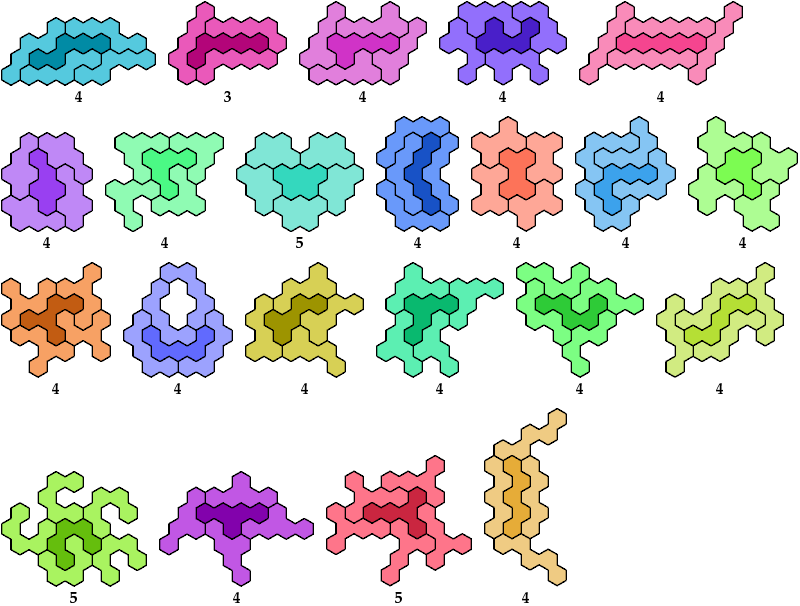
Hexahexes
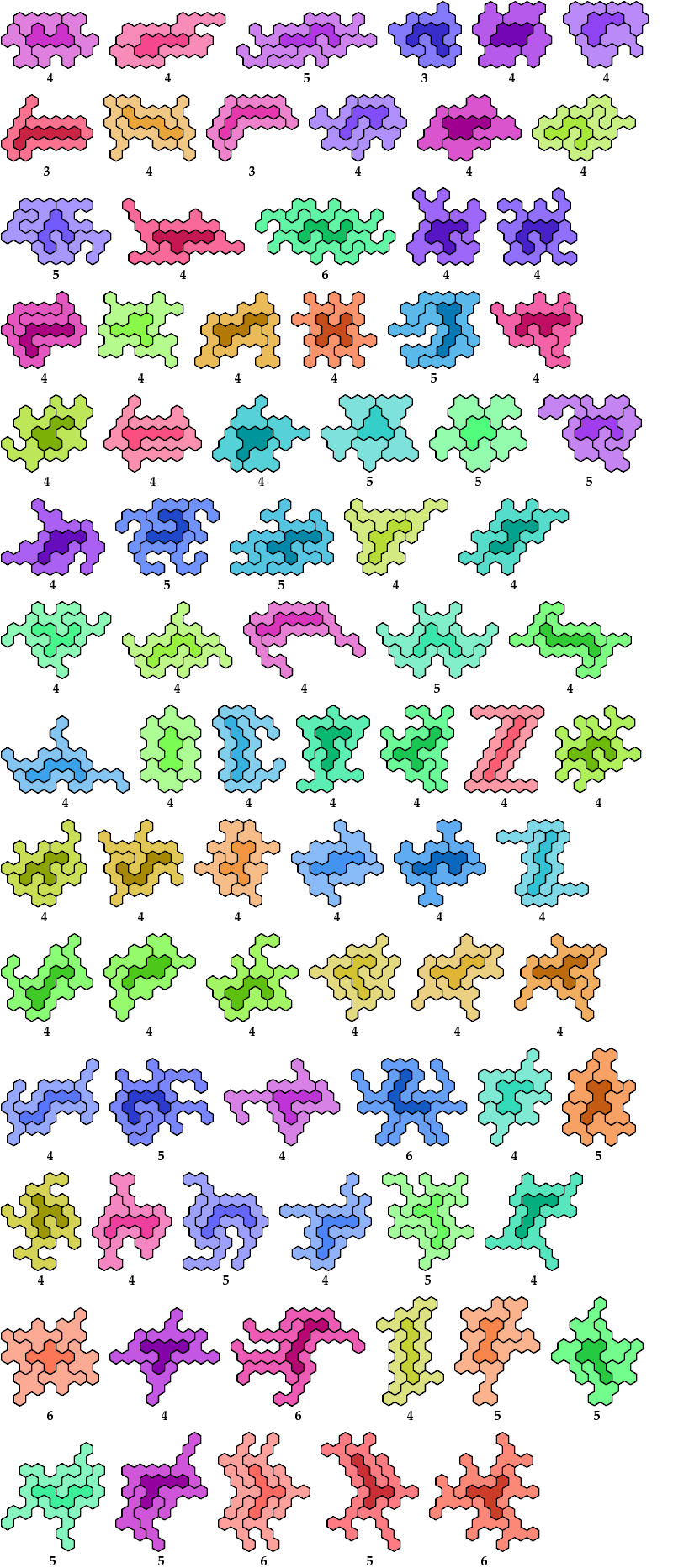
Minimal Polyhexes with Given Surround Numbers
Rodolfo M. Kurchan found all these solutions with up to 6 copies.
3 Copies, 4 Cells
This solution is a tetrad.
As such, it was found by Scott Kim in 1977.

4 Copies, 2 Cells

5 Copies, 3 Cells

6 Copies, 1 Cell

7 Copies, 7 Cells
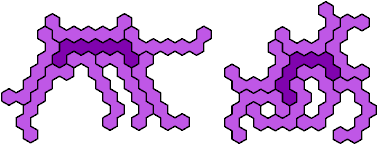
8 Copies, 8 Cells
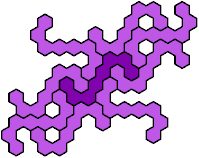
9 Copies, 9 Cells
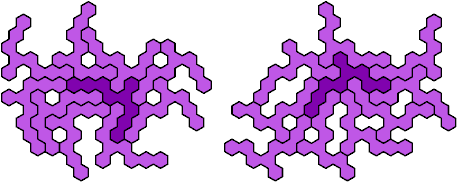
10 Copies, 9 Cells
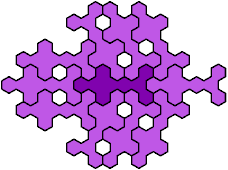
Minimal Holeless Polyhexes that Cannot Surround Themselves
The first example was found by Rodolfo Kurchan.

Last revised 2025-01-18.
Back to Polyform Tiling
<
Polyform Curiosities
Col. George Sicherman
[ HOME
| MAIL
]















